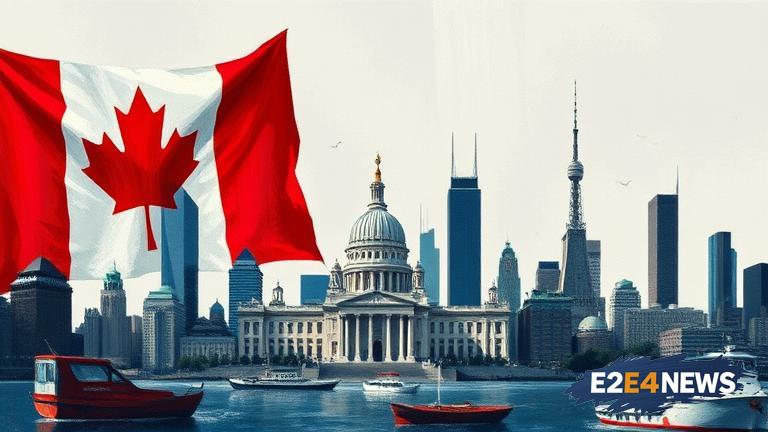In a concerning trend, Canada is witnessing a shift towards technocratic governance, where the rule of experts is displacing genuine self-government. This phenomenon, as highlighted by John Robson, poses a significant threat to the country’s democratic foundations. The increasing reliance on experts and bureaucrats to make decisions on behalf of the people is eroding the principles of self-governance and accountability. As a result, Canadians are losing control over their lives and their country. The expert class, with its own interests and biases, is now driving policy decisions, often without regard for the will of the people. This has led to a lack of transparency and accountability in government, as decisions are made behind closed doors, without input from the citizens. The consequences of this trend are far-reaching, with Canadians facing a loss of autonomy, freedom, and prosperity. The concentration of power in the hands of a few experts and bureaucrats has also led to a lack of diversity in thought and opinion, stifling innovation and progress. Furthermore, the rule of experts has created a culture of dependency, where citizens rely on the government to solve their problems, rather than taking initiative themselves. This has undermined the sense of community and social cohesion, as individuals become increasingly disconnected from the decision-making process. The rise of technocratic governance has also led to a lack of trust in institutions, as Canadians become disillusioned with the lack of accountability and transparency. In addition, the expert class has become increasingly politicized, with many experts using their positions to promote their own ideological agendas. This has created a toxic environment, where dissenting voices are silenced, and alternative perspectives are dismissed. The implications of this trend are profound, with Canada’s democratic system facing a crisis of legitimacy. To reverse this trend, Canadians must reclaim their right to self-governance, demanding greater transparency, accountability, and participation in the decision-making process. This requires a fundamental shift in the way government operates, with a greater emphasis on citizen engagement, decentralization, and community-led initiatives. Ultimately, the future of Canada’s democracy depends on the ability of its citizens to resist the encroachment of technocratic governance and reclaim their rightful place as the drivers of their own destiny. The time for action is now, as Canadians must come together to defend their democratic heritage and ensure that their country remains a beacon of freedom, prosperity, and self-governance. The battle for Canada’s future has begun, and it is up to the citizens to decide whether they will succumb to the rule of experts or rise up to reclaim their rightful place as the masters of their own destiny. The fate of Canada’s democracy hangs in the balance, and the consequences of inaction will be dire. Canadians must choose between a future of freedom, prosperity, and self-governance or one of technocratic tyranny, where the rule of experts reigns supreme. The choice is clear, and the time for decision is now. Canada’s democratic system is at a crossroads, and the path chosen will determine the course of the country’s history. The rule of experts must be challenged, and the principles of self-governance must be upheld. The future of Canada depends on it.
